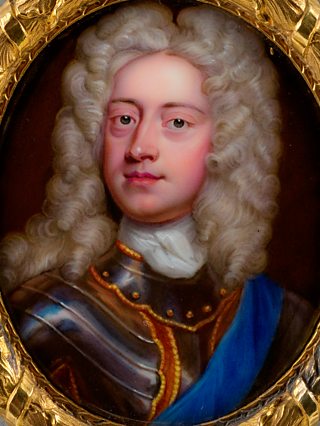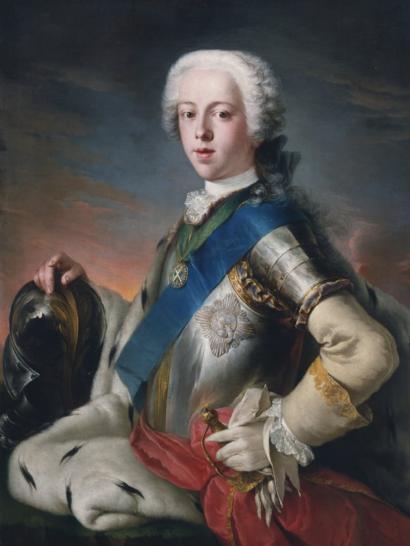George
II was king of Great Britain and Elector of Hanover from 1727 to 1760. He is
considered a mediocre monarch who relied heavily on his ministers, such as
Robert Walpole and Charles Townsend, as well as his queen Caroline of Ansbach for for guidance. George
was the last British monarch born outside the country. The two most significant
events of his reign were the Jacobite Rebellion and the War of the Austrian
Succession. We have already discussed
the former so lets look at the latter.

George II Sources:BBC
The
Jacobites were the supporters of the Stuart Monarch James II (Latin Jacobus).
They resented the alliance that George II had with the Whigs and drew in
support from the Tories. A great deal of Jacobite strength resided in the Celtic
periphery – Scotland, Wales and Ireland – and they enjoyed support from many
religious Roman Catholics and Anglican Tories.
Two
Jacobite attempts to restore Stuart power had failed earlier in 1715 (the so-called Fifteen
Rebellion) and 1719 (the Rising in the
Scottish Highlands). France and Spain had assisted these respective
rebellions. A later Rebellion broke out
in 1745 and was aptly named the Forty-Five Rebellion. Leading
the rebels was the young Prince Charles Edward who was later dubbed the Young
Pretender or Bonnie Prince Charlie. His father, the Old Pretender James Edward,
who was a son of the former monarch James II. In the initial stages of the conflict the rebels
were very successful, consolidating control of much of Scotland, a victory at Prestonpans followed as
they drove south into England all the way to Derby. Another win was secured at
Falkirk in January 1746 as the Government forces stumbled.

Bonnie Prince Charlie source: BBC
However
the retreat of the Jacobite rebels to the Highlands gave forces loyal to George
II time to regroup. A large force under William Augustus, Duke of Cumberland
destroyed the rebels at a spot near Inverness in what would become the Battle
of Culloden. This effectively ended the rebellion.
Battle of Culloden Source: Historic UK
Bonnie
Prince Charlie escaped to the continent disguised as a woman where he would live out his last years. His
supporters would later describe him as ‘The king over the water’.
Culloden
though was a watershed moment in English history. The victory solidified
Hanoverian power against the old Stuart threat and at the same time dealt a
serious blow to Scottish nationalist sentiments. Over the next hundred years (1750-1850)
Scotland would be subjected to a Clearing of the Highlands – an agricultural
and land revolution that would harshly impact the population causing mass
emigration to North America and Australasia in particular.
No comments:
Post a Comment